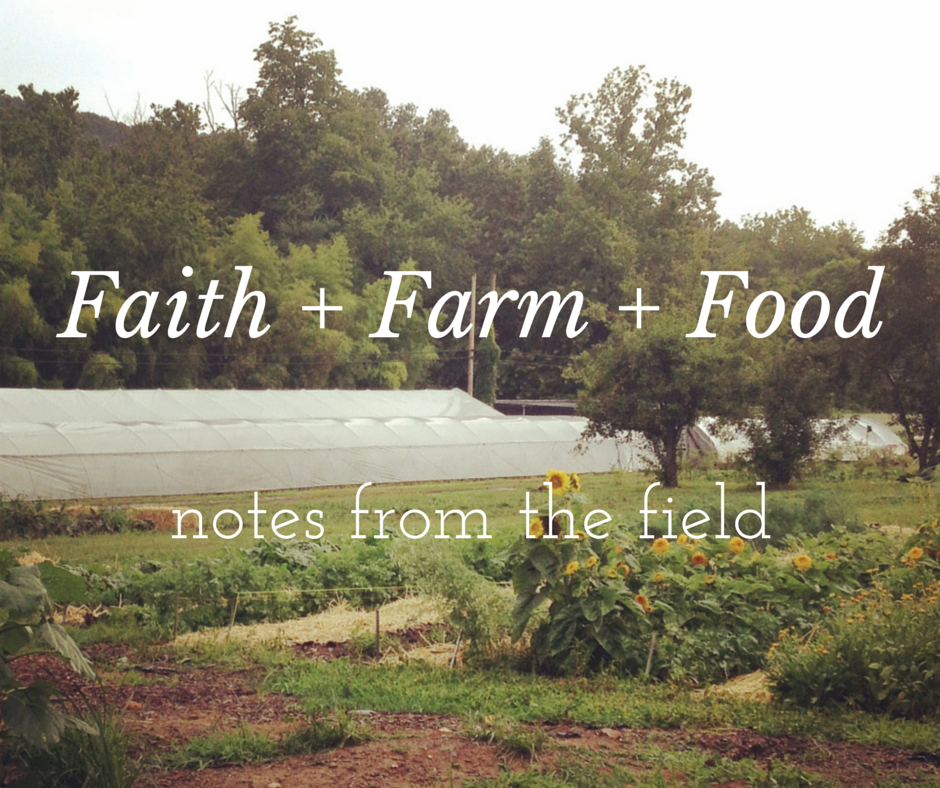Faith & Food Highlight: Seminary Hill Farm

Methodist Theological School in Ohio has founded an organic farm on their seminary campus. In this article, seminary president Jay Rundell says he is not aware of another seminary-based farm in the United States. Neither am I!
“We’re offering students the opportunity to learn about the relationship between land, place, community and congregation,” says professor Timothy Eberhart in the video below.
The farm is part of a larger sustainability initiative at MTSO, which ties into their broader academic mission. These connections are made in a document available on their website, Educational Dimensions of the MTSO Sustainability and Land Initiative. Here’s a key paragraph:
Sustainability is an integral part of ministry with youth and young adults; those in hunger and poverty; within communities of struggling churches; and the unaffiliated/Spiritual But Not Religious (SBNRs). It can be a factor in helping congregations make a difference in their place and helping the church be known as a source of hope. Sustainability also recognizes and values the works of those before us and seeks to honor all acts of faithful stewardship.
Caring for place by growing and sharing good food is a key strategy for community engagement. (Anyone who just read the Task Force to Reimagine the Episcopal Church report should take note!)I learned via email about the impact Seminary Hill Farm has had on their wider community:
We have provided free food on an ongoing basis to Feed Delaware, a local faith-based food pantry. We also offer the broader Greater Columbus community the opportunity to invest in community supported agriculture, with weekly food pickups. (Our CSA shares are available at a reduced price to our students.) In addition, Seminary Hill Farm sells produce at multiple local farmers’ markets and to restaurants with a focus on quality local food sourcing. In the future we expect to work with churches that have expressed interest in beginning farms on their properties.
This is a pioneering ministry which has significant potential and deserves a look from other seminaries, colleges, conference centers and churches – really, any organization that has land and serves people. It’s also a sign of a growing interest and commitment among Christians to being better stewards of Creation – good news for all.The growth of the faith-based farming movement makes me wonder: what would happen if people of faith who had the means were willing to pay the real cost of sustainably-grown food? Maybe if more seminaries had programs like this, future generations of Christians would be willing to do just that.Want to know more about Seminary Hill Farm? Check out their website!Correction: an earlier version of this post contained a paragraph indicating that Seminary Hill Farm completely depended on apprentices as workers. Upon learning that the seminary’s farm-and-food program employs a full-time staff of five, I have deleted the paragraph in question.





Member discussion